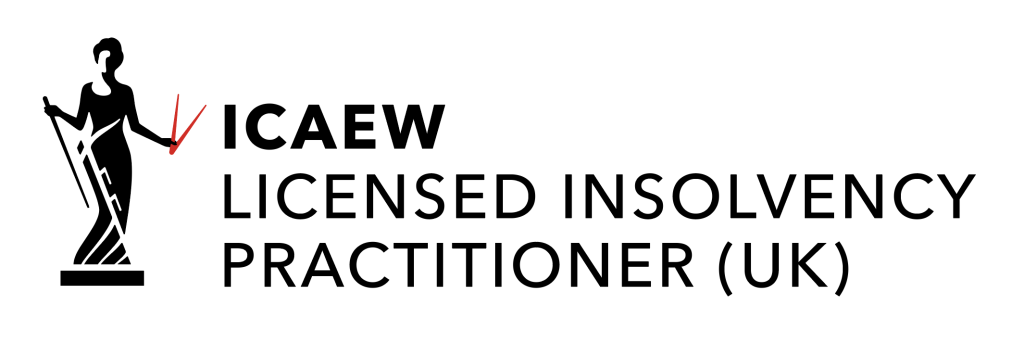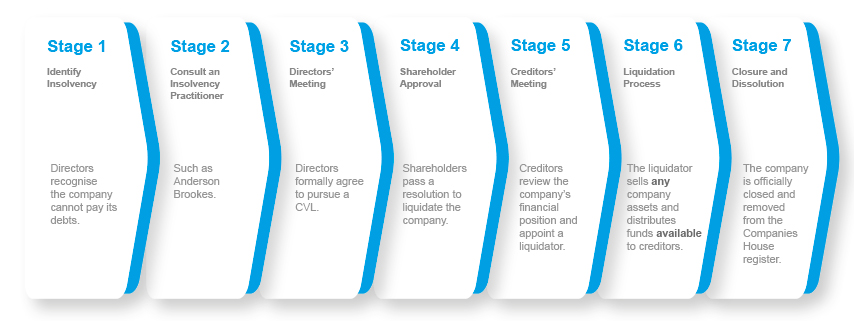Licensed Insolvency Practitioners
Anderson Brookes Insolvency Practitioners help directors close limited companies with debt quickly, legally and with expert guidance every step of the way.
Contact us today
What is a Licensed Insolvency Practitioner? Anderson Brookes
A Licensed Insolvency Practitioner (IP) is a regulated professional authorised to act on behalf of businesses and individuals facing significant financial difficulties. Licensed IPs provide specialist guidance and practical solutions, ensuring compliance with UK insolvency laws, particularly the Insolvency Act 1986.
At Anderson Brookes, our experienced Licensed Insolvency Practitioners, Rikki Burton ACA and Jasmine Baxter, offer expert advice and dedicated support, helping you navigate financial challenges effectively.
The Role of a Licensed Insolvency Practitioner Explained
Licensed Insolvency Practitioners handle formal insolvency procedures such as Creditors’ Voluntary Liquidations (CVLs), Members’ Voluntary Liquidations (MVLs), administrations, and Company Voluntary Arrangements (CVAs). Their role involves carefully managing financial complexities, ensuring a transparent and compliant approach to insolvency.

Roles and the Tasks Involved - Table Summary
| Key Responsibilities | Description |
|---|---|
| Financial Assessment | Thorough evaluation of your financial circumstances. |
| Clear Advice | Explaining suitable insolvency solutions in simple terms. |
| Asset Realisation | Responsibly valuing and selling assets. |
| Creditor Payments | Distributing funds fairly and according to legal priorities. |
| Stakeholder Communication | Managing clear communication with creditors and stakeholders. |
| Director Investigation | Examining directors’ conduct to ensure compliance. |
All IPs are highly qualified professionals licensed by regulatory bodies like the Insolvency Practitioners Association (IPA) or the Institute of Chartered Accountants in England & Wales (ICAEW). At Anderson Brookes, our IPs meet these rigorous standards, handling every case with integrity and diligence.
Why Directors Choose Anderson Brookes
With more than 25 years’ experience and thousands of directors helped, we’re trusted by business owners across the UK. You can speak directly with an expert insolvency practitioner and we’ll help you understand your options clearly and quickly. We specialise in working with small and medium businesses and we understand your perspective and priorities.
Ready to
Move On?
If you’re ready to close your company, stop creditor pressure, or just want to understand your next steps, we’re here to talk.
Call us now on 0800 1804 935 or request a call back - we’re here to help.
Our 7-Step Process: Working with Our Insolvency Practitioners on a CVL

When Do You Need a Licensed Insolvency Practitioner?
Engaging a Licensed IP becomes essential if you:
- Regularly struggle with debt repayments
- Face legal threats like CCJs or bailiff actions
- Have mounting tax pressures from HMRC
- Consider closing your business through formal insolvency
- Require structured repayment plans with creditors
Early engagement with a Licensed IP helps protect your business and personal assets, offering more options for recovery or orderly closure.
Free Advice from a Licensed Insolvency Practitioner
Anderson Brookes offers free, confidential consultations with our Licensed Insolvency Practitioners. We provide tailored, practical guidance, helping you clearly understand your financial options without any initial costs or obligations.
Whether you face business insolvency, personal debt, or simply need professional advice, our Licensed IPs offer clear solutions and compassionate support.
Contact us for a free consultation:
Email: advice@andersonbrookes.co.uk
Phone: 0800 1804 935 (freephone)
How to Appoint a Licensed Insolvency Practitioner
Appointing a Licensed IP involves clear, regulated steps to ensure transparency and compliance:
| Step | Description |
| Initial Consultation | Free confidential advice discussing your financial circumstances. |
| Review & Proposal | Assessment of your situation, recommending suitable solutions. |
| Formal Appointment | Shareholders formally appoint the IP via resolution. |
| Notification | Notices are published in The Gazette to inform creditors. |
| Process Management | Comprehensive management of the insolvency process by the IP. |
At Anderson Brookes, we streamline appointments, providing professional support every step of the way.
Meet Our Licensed Insolvency Practitioners
At Anderson Brookes, your insolvency situation will be expertly managed by our highly qualified and regulated practitioners. Our in-house team of Licensed Insolvency Practitioners include:
Rikki Burton – Licensed by the Institute of Chartered Accountants in England & Wales.
Jasmine Baxter – Licensed by the Insolvency Practitioners Association (IPA).
Both practitioners have extensive experience, ensuring effective handling of insolvency procedures in compliance with all legal obligations.
Testimonials
Our clients praise our professionalism, reliability, and the exceptional support we provide during challenging times, helping thousands of company directors through insolvency, liquidation, and business debt solutions.
Frequently Asked Questions
Have a company in England or Wales? These are your limited company business debt, liquidation and insolvency questions answered.
Can I liquidate the company myself?
No. Only a Licensed Insolvency Practitioner can place a company into liquidation.
What are the advantages of liquidation?
Placing the company into liquidation will stop debt enforcement, including bailiff action. The directors are usually in control of the process and can choose the liquidator. In most cases, it can be completed within two weeks without needing to attend any formal meetings. Company debts are usually written off unless they are personally guaranteed. Directors who act responsibly can show they handled the company’s financial affairs properly.
Is liquidation the same as dissolving the company?
No. Only a Licensed Insolvency Practitioner can liquidate a company. A director can apply to dissolve a company through Companies House, but only if certain conditions are met. If the company is insolvent, it may be a criminal offence to apply for strike-off. Always take professional advice before doing this. If you think you might qualify for dissolution, call us and we’ll explain the process. See our Licensed vs Unregulated page.
What is compulsory liquidation?
This happens when a creditor applies to court to wind up a company due to non-payment of a debt over £750. If the court agrees, the company is placed into compulsory liquidation. This often leads to more problems for directors, who may find it harder to defend against accusations such as wrongful trading. It is usually better to start the process voluntarily. See Strike Off vs Voluntary Liquidation for more details.
How much will it cost to liquidate my company?
It depends on your situation. In most cases, the directors do not pay the costs personally. The liquidation is paid for using company assets. We are a small practice based in Bolton with low overheads, so we offer some of the most competitive fees in the UK. All costs will be confirmed in writing before we proceed. You may also be interested in CVL Costs.
What is a phoenix company?
This is a new limited company that starts after an old one has gone into liquidation. It allows the business to carry on with the profitable parts of the original company. There are strict rules about reusing a company name, so it’s important to get advice before going ahead. For further detail and more simple explanations of insolvency and liquidation terms see our Glossary.
What is a Members’ Voluntary Liquidation (MVL)?
An MVL is used when a company is still solvent and can repay all its debts. It may be the right option if directors want to retire or step away from the business. MVLs can offer tax benefits, but they must be handled by a Licensed Insolvency Practitioner. See all types of liquidations.
What is wrongful trading?
If a company is insolvent and directors carry on trading, they may be accused of wrongful trading. A director could be held personally liable if they knew, or should have known, that the company couldn’t avoid liquidation and did not act to reduce losses. Acting early helps reduce this risk.
Do you only offer formal insolvency advice?
No. Many businesses contact us who do not need formal insolvency procedures. We help explore all the options, including self-help and informal solutions. If formal action is needed, our Licensed Insolvency Practitioner can act for you directly.

